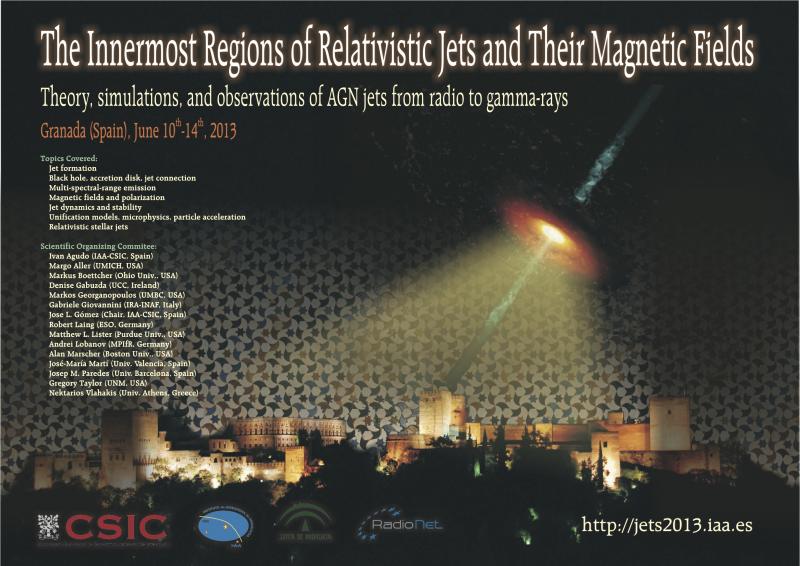The Innermost Regions of Relativistic Jets and Their Magnetic Fields. Granada (Spain). June 10th-14th, 2013.
Sorcia, Marco
Long term optical polarization variability of the TeV Blazar 1ES1959+650 analized within the framework of a two-component model.
Author list: M. Sorcia, E. Benítez, D. Hiriart, J. M. López, J. I. Cabrera, R. Mújica, J. Heidt, I. Agudo, K. Nilsson and M. Mommert
In this talk we will show our main results obtained through the analysis of optical R-band photopolarimetric variability data obtained from 2008 to 2011 of the TeV blazar 1ES 1959+650. In particular, we found that the source shows a maximum polarization degree of ~12.2% and a presented a preferential position angle of ~153°, with variations of ~10°-50°, that is in agreement with the projected position angle of the parsec scale jet found in radio at 43 GHz. From our analysis of the Stokes parameters, we infer the existence of two optically-thin synchrotron components that contribute to the polarized flux. One of them is stable, with a constant polarization degree of ~4%. We estimated some parameters associated with the the relativistic jet: the magnetic field B~0.06 G, the Doppler factor ~23, the viewing angle ~2.4°, and the size of the emission region ~5.6x1017 cm. Our study is consistent with a two-component model that is able to explain the polarimetric variability displayed by this source during our monitoring.




